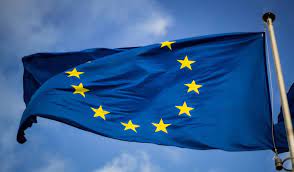EU Missions on track to meet their 2030 ambition towards a greener and healthier continent

Brussels: During their first two years, the EU Missions in Horizon Europe have supported the Commission’s work on the European Green Deal, making Europe fit for the Digital Age, and Europe’s Beating Cancer Plan.
Since their inception, EU Missions have demonstrated their potential to accelerate change. Supported primarily by Horizon Europe funding, they have also connected and supported EU policies and programmes with local action and citizen engagement.
They are on track to achieve their ambitious goals by 2030 in critical areas such as adaptation to climate change, improving the life of cancer patients, cleaning up the marine and freshwater ecosystems, making cities climate-neutral, and making soils healthy.

These are the conclusions of the Communication on EU Missions under Horizon Europe adopted today. The Communication provides a thorough assessment of progress so far, as required by the co-legislators after their first two years of operation. It highlights the main achievements of the current five individual Missions, while also identifying challenges they have encountered and proposing a set of actions to address these. In light of this balanced assessment, today’s Communication also proposes to spend 11% of the Horizon Europe Pillar 2 budget on EU Missions in the last part of the Programme (up from 10% currently). This corresponds to a total amount of over €3 billion for the period 2024-2027. It also launches preparations for a new EU Mission on the New European Bauhaus.
The Commission commits to make the EU Missions even more effective by for example:
Intensifying discussion with political actors, notably Member States, on how to streamline EU Missions’ governance to make it more efficient, inclusive, and effective;
Mobilising a broader portfolio of instruments to secure greater participation of the private sector, including public-private partnerships and the public procurement of innovation;
Undertaking targeted actions to support local and national communication efforts to boost citizen engagement and raise public awareness of EU Missions.
Given the potential of the Missions instrument to galvanise change, and the fact that the New European Bauhaus initiative already shares several characteristics with EU Missions, the Commission today begins the preparatory phase for a dedicated new EU Mission, following the same process as for the first five. This includes the appointment of a Mission Board, and the drafting of a Mission Implementation Plan, both of which will help define the exact targets and milestones of the Mission.
The New European Bauhaus has already developed synergies between research and innovation investments, other funding instruments, and private sector investment. The new EU Mission would engage with people to build greater social acceptance for Green Deal policies, promoting social ownership of green solutions and encouraging behavioural changes needed to meet Green Deal targets. The Commission will work closely with the Member States and the community at large to define this approach.
The Mission on Adaptation to Climate Change aims at supporting at least 150 European regions to become climate resilient by 2030. Since its launch, 308 regional and local authorities have signed the Mission Charter. A dedicated Mission Implementation Platform is providing technical assistance to the regions, and 50 of them are developing a common methodology for carrying out detailed risk and vulnerability assessments.
The Cancer Mission has the ambitious goal of improving the lives of more than 3 million people by 2030, through prevention, cure and for those affected by cancer including their families, to live longer and better. At EU level, Europe’s Beating Cancer Plan together with the Cancer Mission have fostered a new dialogue with Member States. The Mission is playing a pivotal role in enabling the development of the UNCAN.eu data platform to help researchers analyse combined research, health and other relevant data at an unprecedented scale.
The goals of the Climate Neutral and Smart Cities Mission are to achieve 100 climate neutral and smart cities by 2030 and to ensure that they also act as experimentation and innovation hubs to all European cities. The Call for Expression of Interest to join the Mission closed in January 2022 and resulted in applications from 377 cities. The Mission has created a powerful community of ambitious cities that, through a Mission Platform, work in groups, exchange experience and access a knowledge repository to accelerating climate-neutral solutions.
The goal of the Restore our Ocean and Waters Mission is to reconcile the protection and restoration of marine and freshwater ecosystems with the ever-growing pressures on aquatic resources. Four Mission ‘lighthouses’ in major European sea and river basins have been set up as much-needed sites to pilot, demonstrate and deploy the needed solutions at scale, making them available to over 100 European associated regions. Interest in the Mission is demonstrated by more than 480 actions that were pledged under the Mission’s Charter.
With its goal of establishing 100 Living Labs and Lighthouses by 2030, the Soil Mission aims to deliver solutions for the sustainable management and restoration of soils in rural and urban areas. Under the Mission, regional and local authorities are developing Territorial Soil Management Agreements for soil health. The Mission is advancing harmonised soil monitoring in the EU and is developing strategies for soil decontamination and regeneration as well as new business models for soil friendly and climate-neutral value chains.





